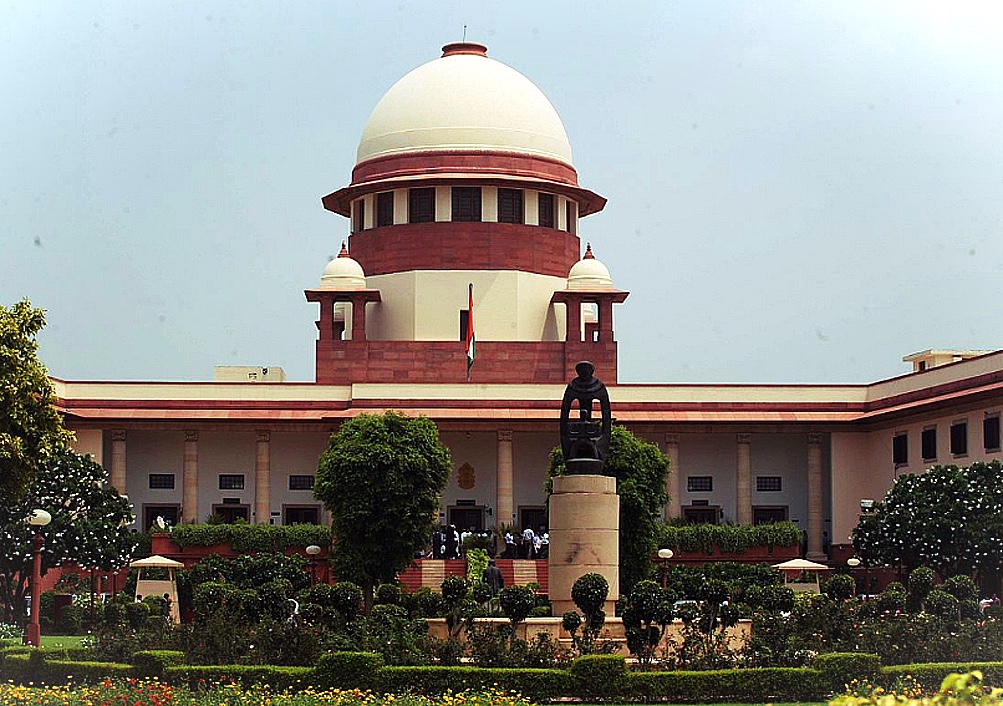Accused in sexual offence cases cannot access victim’s statement before probe is complete: SC

New Delhi, October 8: Attaching utmost confidentiality to statements given before a Magistrate by victims of sexual exploitation, the Supreme Court on Thursday held that such a statement cannot be shared with the accused till the investigation by the police in all aspects is over.
The decision has come as a big relief to the victims of sexual crime as there was a grey area with regard to the stage at which the statement of the victim recorded before the Magistrate under Section 164 of the Code of Criminal Procedure (CrPC) could be shared with the accused, Hindustan Times reported.
This is the most crucial evidence given by the victim in a sexual crimes and has evidentiary value unlike the statement recorded before the police under Section 161 of CrPC. If the victim goes against her Section 164 statement, the trial court can proceed with perjury against the victim for lying on oath, besides discarding the same.
In 2014, the Supreme Court had held in State of Karnataka v Shivanna that soon after the victim’s Section 164 statement is recorded, the same must be handed over to the Investigation Officer with a specific direction that “contents of such statement under Section 164 are not disclosed to any person till charge sheet was filed.”
The present case decided by the apex court arose out of a November 7, 2019 order passed by the Allahabad High Court. This case related to a sexual assault complaint filed by a young woman in Shahjahanpur against former Union Minister and BJP leader Swami Chinmayanand.
The woman had recorded her Section 164 statement before a Judicial Magistrate on September 16, 2019. The next day, Chinmayanand sought a certified copy of her statement. His application was rejected by the Additional District and Sessions Judge, Shahjahanpur. Pursuant to this he was arrested and a charge sheet was filed by the police on November 5, 2019. He appealed to the Allahabad High Court and on November 7 obtained the Section 164 statement through an order passed in his favour by the HC. The HC referred to the 2014 SC ruling but held that the same applied to the police and not courts.
Setting aside this order, the SC held, “The High Court has completely erred in appreciating the directions of this Court, especially in a matter where offences alleged against the accused are of sexual exploitation. In such matters, utmost confidentiality is required to be maintained.”
Advocate Satya Mitra who assisted the Supreme Court in this matter said, “In trials involving sexual crimes, the victims can now be assured that whatever they tell the trial judge will be kept confidential. This decision has given hope to victims to seek justice against their perpetrators. Sadly, the victim in this case could not get benefit of this order.”
The victim in this case had filed the appeal in the Supreme Court on November 13 but by then her statement was made available to the alleged perpetrator of the crime. Although her lawyers received no instruction to pursue with the case, the Court proceeded to lay down the law after hearing both sides.
Going a step further in its 2014 decision, the bench, also comprising Justices Vineet Saran and SR Bhatt said, “No person is entitled to a copy of the statement recorded under Section 164 CrPC till appropriate orders are passed by the court after filing of charge sheet.” The Magistrate after receiving the charge sheet has the option to take cognizance of the charge sheet or has power under Sections 207, 208 of CrPC to order further investigation on certain aspects of the case.
“The right to receive a copy of such statement will arise only after cognizance is taken and at the stage contemplated by Sections 207 and 208 of the Code and not before,” the bench held.
Sign up for our weekly newsletter to stay up to date on our product, events featured blog, special offer and all of the exciting things that take place here at Legitquest.




Add a Comment